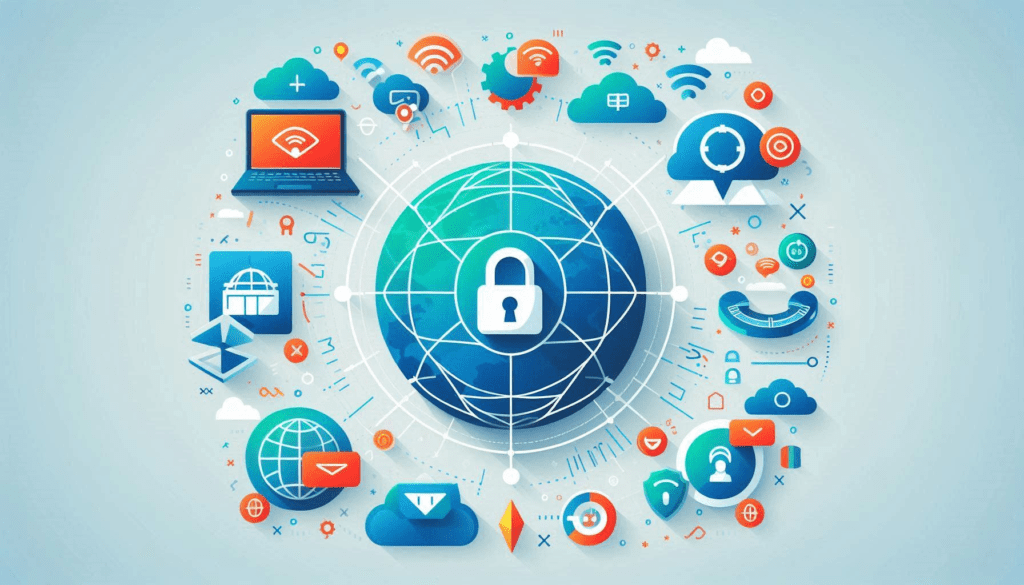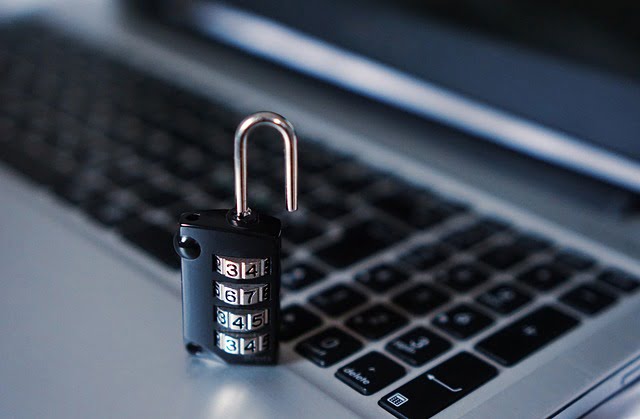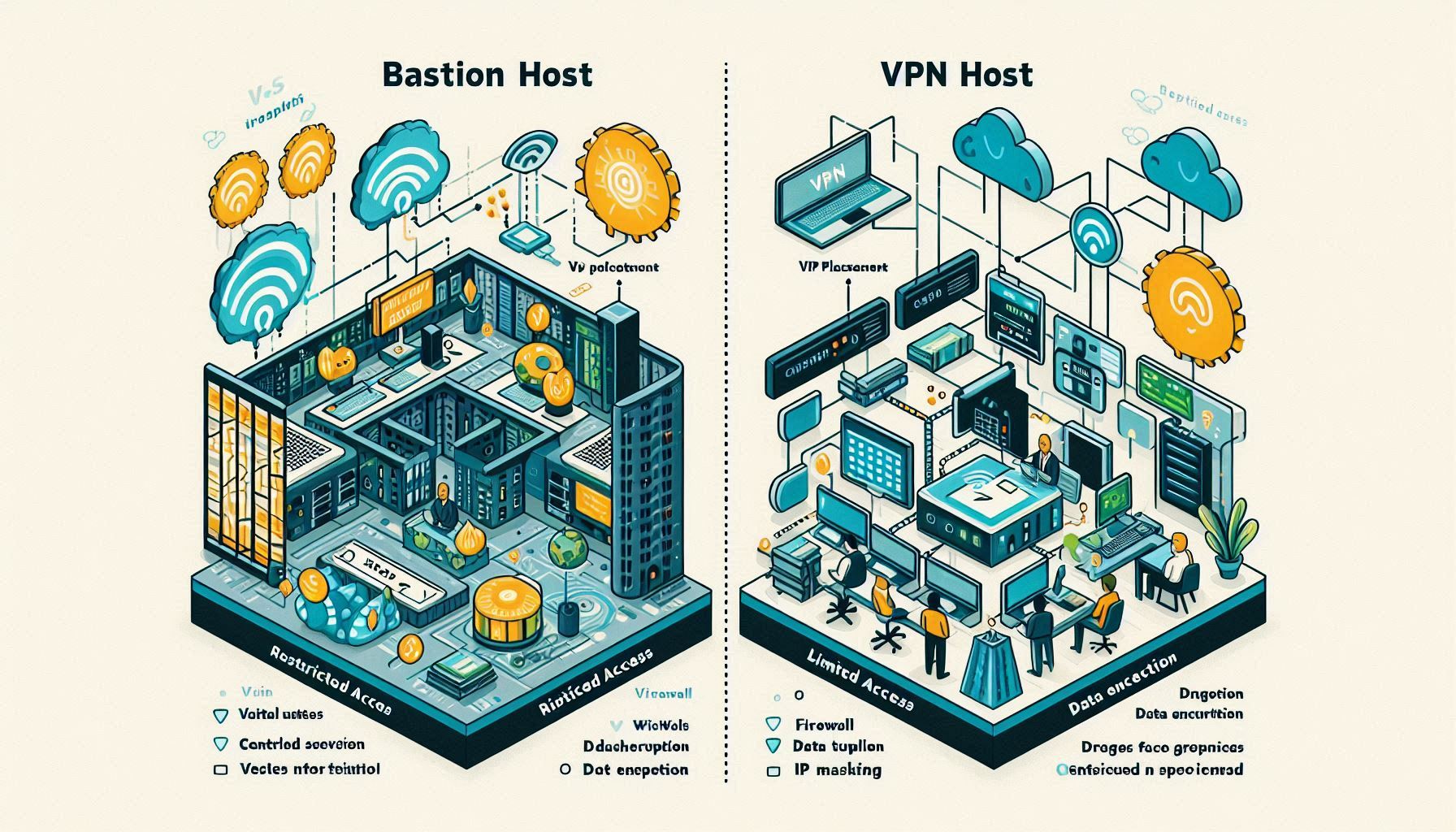VPN Without Internet: How It Works and Common Misconceptions

VPN Without Internet: How It Works and Common Misconceptions, Considering how common VPNs are for safeguarding online activity, this subject usually piques people’s interest. Many people ask if VPNs can still operate in the event of an internet connection outage, even if their primary purpose is to safeguard your privacy by encrypting your internet data. We will examine this fascinating topic in this post, dispelling common misconceptions regarding VPN use in offline situations and providing the facts about whether or not a VPN can function without internet access.
Understanding the Role of the Internet in VPN Functionality
An internet-based service that is dependent on an active internet connection for operation is essentially what a VPN is. Your data can pass via the internet safely thanks to a VPN, which operates by building a secured, encrypted tunnel between your computer and a distant server. By avoiding data interception and surveillance during transmission across the internet, this tunnel guarantees the privacy of your online activities.
The crucial aspect in this case is that data transmission across the VPN connection is solely dependent on the internet. Once you establish a VPN connection, all device traffic is forwarded over the internet to the VPN server, where it is encrypted and transferred to its intended location. To ensure that no one can see your actual IP address or access the data while it is in transit, all information and data you receive from websites or services also pass through this encrypted tunnel.
This procedure really cannot be carried out without an internet connection. There isn’t any information to encrypt, a server to connect to, or a tunnel to build. Because of this, a VPN cannot operate without a live internet connection. Its entire goal—anonymizing and safeguarding your online behavior—is dependent on that relationship continuing to exist. The VPN is useless without the internet, hence no privacy protection is possible.
VPN Without Internet: Misconceptions and Myths
When it comes to using a VPN, there are a lot of popular misconceptions, one of which is that it might function offline. This misperception is the result of a lack of awareness regarding the main functions and purposes of VPNs.
A commonly held misconception is that a virtual private network (VPN) cannot provide privacy and security in the absence of an internet connection. Some users think that even if their device isn’t connected to the internet, just having a VPN program installed gives them an extra degree of security. That isn’t the case, though. For a VPN to establish a secure tunnel between your device and the VPN server, there must be an active internet connection. The VPN is unable to set up any security features without this connection.
Another common misunderstanding is that a VPN could act as a form of local network security, protecting your data or device even when you’re offline. While it’s true that certain security tools, like firewalls or antivirus programs, can protect your device in an offline environment, a VPN does not operate this way. Its primary function is to protect your data as it moves across the internet, meaning it needs that internet connection to be useful.
It’s possible for people to believe that a VPN will continue to provide protection even in the event of an internet outage by maintaining its connection or encryption. Nevertheless, the VPN becomes inoperable as soon as the internet connection is lost. The VPN server connection is lost, and no encrypted data is being transferred.
Let’s put it this way: although VPNs are an effective means of protecting online behavior, they don’t work offline. There is no truth to any myth claiming that a VPN can shield users who aren’t online.
Offline Scenarios: Can VPNs Still Be Useful?
There are situations in which VPN tools or applications can be configured or ready for future online use even if they require an internet connection to operate. As soon as you connect to the internet, your device will be safe because you set up your VPN correctly before using it. When you’re not even connected to the internet, VPNs can be helpful in the following ways:
- Pre-configuring VPN Settings
The majority of VPN programs let you select servers or change other settings before actually connecting to the internet. You can set up protocols (like OpenVPN or WireGuard) or activate features (like automated kill switches and DNS leak protection), for instance, or choose your favorite VPN server location. With the help of these settings, you may increase security and convenience by having the VPN activated immediately with your selected configuration as soon as your device connects to the internet. - Automatic Connection on Startup
The option to have your device automatically connect to a VPN server the minute it connects to the internet is a feature of several VPN software. This feature allows your VPN to start working as soon as you connect to any network, public or private, which is quite handy for individuals who would rather not have to manually activate their VPN. The VPN tunnel must be established over the internet in order to begin securing your data, even though the setting can be completed offline. - Customizing Protocols for Better Performance
You can change VPN protocols or encryption levels offline based on how you plan to use them. For work needing high-speed connections, you may select a quicker protocol like WireGuard, or for duties that require greater security, you might use OpenVPN’s stronger encryption. Depending on your preferences, these modifications will take effect as soon as the VPN connects to the internet again, guaranteeing optimal security or performance. - Configuring Split Tunneling
A common feature of VPNs is split tunneling, which lets you route some data via the VPN and allow other traffic to go around it. This can be especially helpful when using local network resources and preserving privacy for specific types of activities. Which applications or websites will use the VPN connection when you’re back online can be configured offline.
VPNs require the internet to operate, but you can guarantee that you’ll have a private and secure experience from the moment you connect by setting up and configuring these tools offline. Your device will automatically be protected by the settings and features you pre-configured, taking effect as soon as it connects to the internet. The VPN itself, however, stays idle until the internet is accessible.
Situations Where You Can’t Use a VPN
While VPNs are a terrific way to secure your online privacy and identity, there are specific situations where they cannot be used. You can tell when a VPN won’t be able to secure your connection by being aware of these limitations. Some circumstances in which a VPN cannot work are as follows:
- No Internet Connection
That is the most obvious case when there is no internet connection. VPNs require an active internet connection in order to create a secure tunnel between your device and a remote server. If you are not online, if you are in a location without Wi-Fi or mobile data service, or if you have none of these, the VPN cannot establish or maintain its encryption tunnel. - Power Outages
When there is a power outage, your home internet router and any connected devices are not able to access the internet. Your VPN connection will immediately end even if it was active before the power outage if your internet connection is terminated due to a power outage. In the same way, a VPN connection on a public Wi-Fi network will end if power is disconnected. - Network Issues or Interruptions
If you live somewhere with a bad signal or your internet service provider (ISP) experiences outages, your VPN connection may become inconsistent or cease working altogether. The encrypted tunnel cannot be maintained by your data without a stable and constant internet connection, leaving it unprotected until you rejoin to the VPN. - Restricted or Blocked Networks
Governments and other organizations enforce stringent internet regulations in certain nations or areas, frequently completely prohibiting VPN services. Your VPN might not be able to connect at all if you’re connected to a network that deliberately forbids the use of VPNs (such as some public networks or highly limited internet environments). The security and privacy that a VPN offers cannot be obtained without internet access through it. - Device in Airplane Mode
All wireless communications, including mobile data and Wi-Fi, are turned off when your smartphone is in airplane mode. In order for VPNs to operate, these communications are necessary, so turning on airplane mode will disconnect the VPN connection and keep it from operating until the device is connected to the internet again.
What Happens When VPN Services Become Unavailable?
Unless special protection measures are in place, your data may become exposed when a VPN connection stops or becomes inaccessible due to one of the aforementioned events. In order to stop your device from transferring unencrypted data, certain VPN services have a kill switch option that instantly shuts off all internet traffic when the VPN connection drops. Your IP address and data may become susceptible if your device reverts to using an unsecured network connection in the absence of a kill switch.
As a whole, VPNs are effective tools, but their use requires a steady internet connection. In many circumstances, your privacy could be jeopardized if the connection abruptly cuts out, and without one, your capacity to secure your online activity ends.
Alternatives and Solutions for Offline Privacy

Even while a VPN is a very powerful tool for safeguarding your data when you’re online, there are several other products and methods that can improve your security and privacy when you’re not using it. These techniques help protect your private data and personal information that is kept on your device, so even when a VPN or internet connection is unavailable, your privacy is protected. Here are a few crucial fixes:
- Encrypted Storage
Using encrypted storage is one of the best ways to safeguard sensitive data off-line. Your files can be randomly arranged using encryption software so that someone lacking the decryption key cannot read them. You can encrypt the whole hard drive with built-in encryption tools like FileVault on macOS or BitLocker on Windows, which make sure that your data is safe even if your device is stolen or lost. VeraCrypt and other third-party encryption programs can provide extra security for particular files or folders on external drives or USBs. - Firewalls
A firewall is a type of security system that keeps an eye on and regulates network traffic, both coming in and going out, according to pre-established security rules. Although a firewall is most helpful when your device is online, it also prevents unwanted attempts to access your computer over local connections, which is important for offline privacy. When you’re linked to a local network—even one without internet access—where other devices might try to access your system, this can be especially crucial. - Local Device Encryption
Encrypting your whole device—rather than just the files it contains—can provide strong security against unwanted access. Encryption capabilities that protect your device even when it’s offline are frequently included in laptops and smartphones. In this manner, your password or biometric information (such as a fingerprint or facial recognition) will be required if someone tries to access your data in order to unlock it. When you want to keep your data safe but aren’t connected to the internet, this is a crucial layer of privacy. - Secure File Deletion
Some files can frequently be recovered from your computer even after they have been completely deleted. You may be certain that private data is erased from your device forever by using a secure file deletion program. Tools that overwrite deleted files render them unrecoverable, such as Secure Empty Trash on macOS and Eraser on Windows. Greater privacy is provided even when offline, as this stops anyone from recovering your previous data. - Password Managers
Although many of them function offline as well, password managers are primarily thought of as online applications. You may access your passwords offline in an encrypted vault kept by password managers such as 1Password, LastPass, and Bitwarden. Passwords and sensitive data can be safely retrieved without jeopardizing privacy, even in the absence of an internet connection. - Local Backups with Encryption
Maintaining regular backups of your data is essential for information security, but encrypted backups are also necessary for privacy protection. Numerous backup programs provide offline backup choices that allow data to be stored locally or on external disks. These backups are encrypted to guarantee that the data on them is secure even in the event that the backup device is compromised. from unauthorized access. - Antivirus and Malware Protection
Antivirus and anti-malware software not only works online but also offline to defend your machine from threats that come from around. These programs check for malware that could have entered the system through offline channels like external disks. They assist in keeping your system safe by identifying and getting rid of potentially dangerous applications, even when you’re not online. - Air-Gapped Systems for Maximum Security
An air-gapped system is a device or network that is physically isolated from the internet and any external connections in high-security settings. As there is no chance of remote attacks or breaches, this is among the safest methods for safeguarding extremely sensitive data. It is a technique used in sectors such as government, defense, and finance to guarantee utmost privacy and data protection, but it is not viable for average users.
Conclusion
Finally, by establishing an encrypted tunnel between your device and a distant server, VPNs are effective tools that can improve online privacy and security. However, it’s critical to realize that VPNs require an active internet connection in order to operate. Protecting your online activity and data is impossible with a VPN off the internet. It needs to establish and maintain a secure connection.
We’ve explored several key points:
- VPNs and Internet Dependency: VPNs encrypt and transport your data securely using an Internet connection only. The VPN’s primary features become useless if it cannot connect to the internet.
- Misconceptions: Misconceptions regarding the functioning of VPNs are the source of many common myths about them. An internet connection is necessary for the VPN to function, even after the program is loaded and set up.
- Offline Preparation: Despite the fact that VPNs cannot function offline, you may set up your VPN program and configure its settings ahead of time so that it will launch immediately when you connect to the internet again.
- Alternatives for Offline Privacy: Safe file deletion, local device encryption, encrypted storage, and antivirus software are just a few of the tools and methods that can improve security and privacy when working offline. Even if you’re not online, these techniques assist in safeguarding your data.
Final Thoughts
Realistic expectations about VPN capabilities can be established by acknowledging that they are internet-dependent services. To protect your information when offline, you’ll need to use additional technologies and privacy precautions. If you don’t have a VPN, you may still safeguard your data and increase privacy by using offline security measures like firewalls and encrypted storage. To ensure complete safety in every circumstance, maintaining strong security ultimately necessitates a combination of online and offline tactics.
Also read: Does My Internet Provider See My Search History with a VPN?
Also read: AppDynamics vs Splunk: A Comprehensive Comparison
FAQs:
Can a VPN work without an internet connection?
No, a VPN cannot work without an internet connection. VPNs rely on the internet to establish a secure, encrypted tunnel between your device and a remote server. Without an active internet connection, the VPN cannot function, and therefore cannot provide any privacy or security benefits.
Are there any VPN features that can be used offline?
While a VPN cannot operate offline, you can configure various settings and features before going online. For example, you can select your preferred server, adjust encryption protocols, and enable features like automatic connection. These configurations will be applied once you reconnect to the internet.
What happens to my VPN connection if the internet goes down?
If your internet connection drops, your VPN connection will also be lost. Many VPN services offer a kill switch feature that automatically cuts off internet access to prevent data leakage when the VPN connection drops. Without the kill switch, your device will revert to using the unsecured network connection, potentially exposing your data.
Can I use other methods to secure my data when offline?
Yes, several methods can help secure your data when offline. These include encrypted storage, secure file deletion, local device encryption, firewalls, and antivirus software. These tools can protect your data from unauthorized access and ensure your privacy, even without an internet connection.
How can I protect my data if I’m in an area with restricted internet access?
If you’re in an area where internet access is restricted or blocked, a VPN may not be able to connect. In such cases, focus on offline privacy tools such as encrypted storage and secure file deletion. Additionally, consider using alternative privacy methods like physical security measures for your devices and regular data backups.
Is it possible to configure a VPN to automatically connect when internet access is restored?
Yes, many VPN services offer an option to automatically connect to a VPN server when your device reconnects to the internet. This feature helps ensure that your privacy is protected as soon as you regain internet access.
What are some tools for offline privacy and security?
Tools for offline privacy and security include:
Encrypted storage (e.g., BitLocker, FileVault, VeraCrypt)
Local device encryption (e.g., built-in encryption features on smartphones and laptops)
Firewalls (for local network security)
Secure file deletion tools (e.g., Eraser, Secure Empty Trash)
Password managers (e.g., Bitwarden, LastPass, 1Password)
Antivirus and malware protection
What should I do if I need to ensure data security in a high-risk environment without internet access?
For high-risk environments, consider using an air-gapped system, which is physically isolated from external networks to prevent any remote access or breaches. Additionally, employ local encryption, secure file deletion, and regular backups to maintain data security.
Can I use a VPN to secure local network traffic?
A VPN primarily protects online traffic by encrypting data sent over the internet. However, some VPNs offer features like split tunneling, which allows you to route certain local network traffic through the VPN. For local network security, other tools such as firewalls and local encryption are more effective.
How can I test if my VPN is working correctly when I’m online?
To test if your VPN is working correctly, you can use tools like IP address checkers or DNS leak tests. These tools verify that your IP address is masked and that your data is being routed through the VPN server as intended. Many VPN providers also offer built-in testing features within their apps.
Loading newsletter form...






